Simple starter tips for creating a kitchen garden
funky-chunky-furniture.co.uk
Take that first step to homegrown fruit and veg, from potted herbs to climbing beans
Growing and eating your own vegetables and fruit can be one of the most rewarding things you can do. The thrill of nurturing your own seedlings until you pick that first crop is both grounding and helps us connect with nature.
So what are the easiest crops to grow and how do you get started?
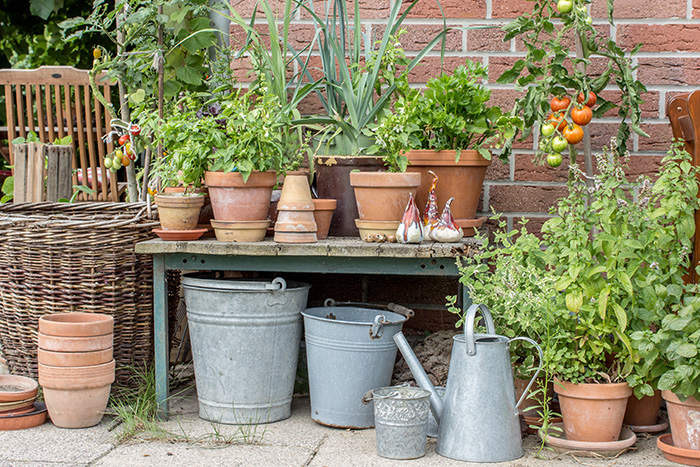
© Shutterstock
Where to grow your crops
Gardens large and small can work for growing vegetables. First, dedicate a sunny spot for your plot. Try starting with a small raised bed measuring one metre square. Use simple lengths of timber, such as old scaffold boards, or buy ready-to-use raised beds. Prepare the soil well by weeding and raking, then add nutrient-rich compost or manure.
If your outdoor growing space is limited or if you only have a balcony or patio, you can still grow some vegetables in containers and will have good success with tomatoes, runner beans and radishes. Or look into getting a rattan folding table or something similar to place them on, ensuring they get enough sunlight when needed.Salad leaves and herbs can be grown in pots or window boxes, potatoes in sacks and strawberries in hanging baskets.
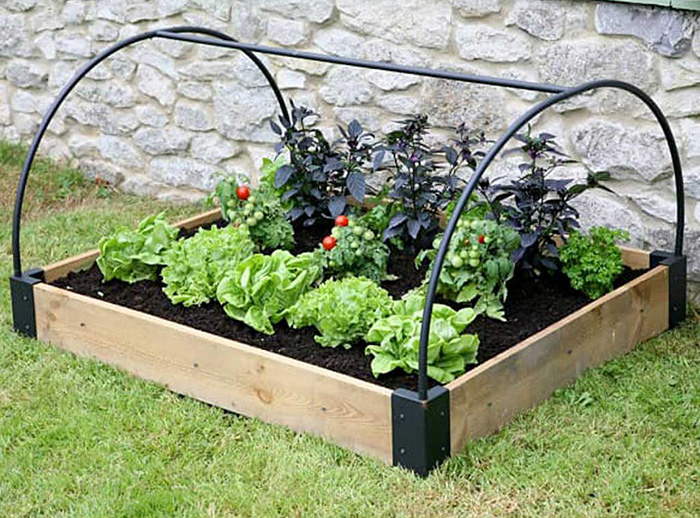
agriframes.co.uk
If you want to get serious and are willing to dedicate more time to growing your own, allotments are a good option. Run by local councils, you will have to pay an annual rent but it’s often minimal and a good investment if you use your allotment efficiently. Think about going in with a friend or two; this way you can share the work involved as well as the bounty! Allotments are also a great way to become part of a community, meeting new friends who will be able to impart their wealth of grow-your-own knowledge with you.
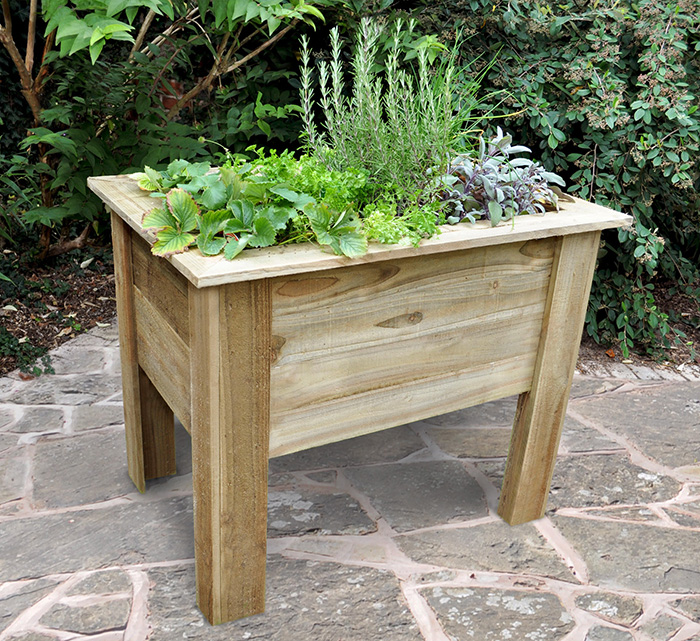
forestgarden.co.uk
From seed to seedling
Most vegetables are best grown from seed indoors during the early months of the year, then planted out once the soil has warmed – usually from the end of March. This will give you more chance of success as your seedlings will be protected from cold weather, pests and other problems.
Sowing seeds
Fill a seed tray with good quality peat-free multipurpose compost. You can reuse plastic food trays for this, adding small drainage holes. If the lids are transparent keep these too, as they will assist with germination.
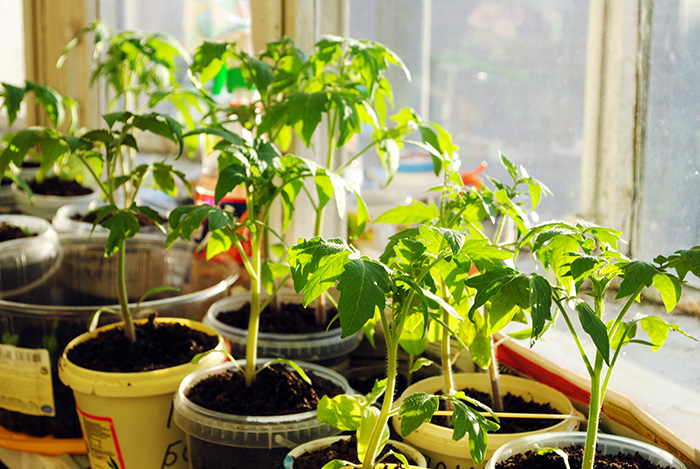
© Shutterstock
Sow the seeds evenly in the tray, leaving about 2–3cm between each one. Cover with a layer of compost, roughly the same depth as the size of the seed. Water from the bottom up, making sure the compost is thoroughly wet, and leave to drain.
Cover with a clear polythene bag or the transparent recycled container lid, to keep the soil moist and maintain its temperature while the seeds germinate. Place in a light position. Once the seeds have germinated – you can see the visible growth above the surface of the soil – remove the cover. Thin out, leaving the strongest seedlings.
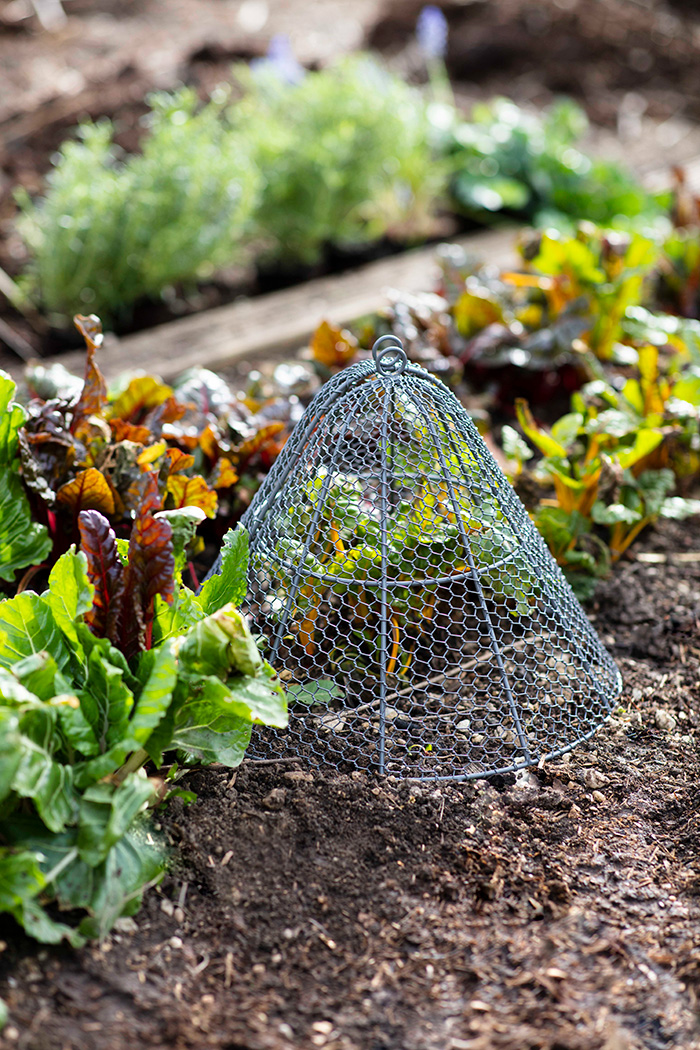
gardentrading.co.uk
Pricking out
When the seedlings have two or more sets of leaves you’ll need to move them to deeper trays or small pots – known as ‘pricking out’. Handle them only by their leaves, not the stem, planting about 5cm apart and burying them up to the base of the first set of leaves. Water in and allow the plants to establish themselves.
Hardening off and planting out
A week or so before you plan to plant outside, you will need to ‘harden off’ the seedlings and get them used to the difference in temperature by leaving them outside during the day. Once the plants have grown to roughly 20cm tall they are ready to plant outside.
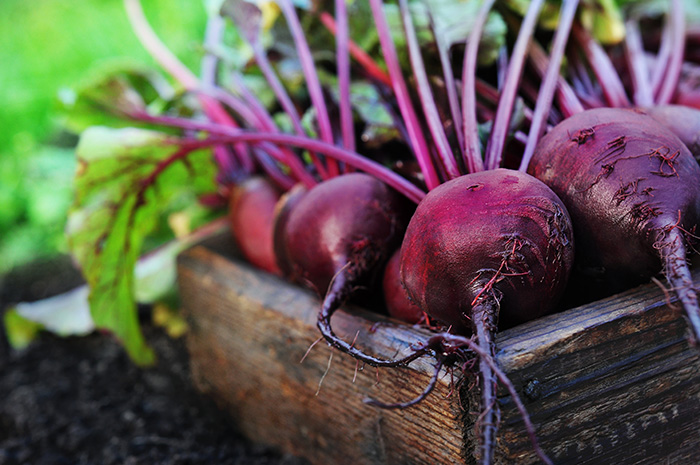
© Shutterstock
Best starter vegetables
These veg require little maintenance, will be ready to harvest within a fairly short time, and suffer the fewest pests and diseases.
- Courgettes Sow seeds indoors April to June; plant seedlings outside May to June; harvest July to June
- Broad beans Sow seeds indoors February to May; plant seedlings outside April to May; harvest May to July
- Beetroot Sow seeds indoors March to July; plant seedings outside May to June; harvest June to October
- Carrots Sow seeds directly into soil outside February to July; harvest May to October
Words: Angela Maynard
Before you go...
...fancy automatic entry to all future competitions?
Simply register online today for FREE and you will get:
Automatic entry to all current and future competitions.
Access to Reclaim Inspiration - an online visual pinboard for saving all your home and style inspiration.
A regular newsletter of inspiration, ideas and advice.

Save all your articles in one place
Become a Reclaim Member to save all your home and style inspiration. Simply login or register online today for FREE and you will get:
Automatic entry to all current and future competitions.
Access to Reclaim Inspiration - an online visual pinboard for saving all your home and style inspiration.
A regular newsletter of inspiration, ideas and advice.








